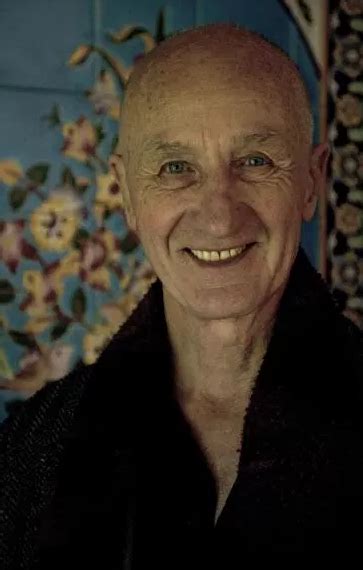A Quote by Frederick Lenz
When you are not meditating, eliminate hate, doubt, fear, anxiety, negative thoughts and emotions that limit your consciousness, that bind you to a sense of self, of ego.
Related Quotes
How does one get rid of fear? Ramana: What is fear? It is only a thought. If there is anything besides the Self there is reason to fear. Who sees things separate from the Self? First the ego arises and sees objects as external. If the ego does not rise, the Self alone exists and there is nothing external. For anything external to oneself implies the existence of the seer within. Seeking it there will eliminate doubt and fear. Not only fear, all other thoughts centred round the ego will disappear along with it.
There are only two emotions: love and fear. All positive emotions come from love, all negative emotions from fear. From love flows happiness, contentment, peace, and joy. From fear comes anger, hate, anxiety and guilt. It's true that there are only two primary emotions, love and fear. But it's more accurate to say that there is only love or fear, for we cannot feel these two emotions together, at exactly the same time. They're opposites. If we're in fear, we are not in a place of love. When we're in a place of love, we cannot be in a place of fear.
The ego, as our familiar sense of self, seems predicated on fear. The fear that we might not make it, that we might not get where we want to go. But deep down there is also a grain of fear that we have nothing to give or nothing to offer. I think that's the ego's justifiable anxiety about its substantiality and existence.
Ultimately, there is no such thing as "my consciousness," but just the one consciousness and to sense your connectedness with the one (I can sense that continuously, which is why I can say that I know this for sure) to sense that connectedness with the one consciousness that pervades the universe, which in some traditions is called God, to sense that frees you of fear, from anxiety, and takes you to a very deep place of peace, but also of heightened aliveness.
In the egoic state, your sense of self, your identity, is derived from your thinking mind - in other words, what your mind tells you about yourself: the storyline of you, the memories, the expectations, all the thoughts that go through your head continuously and the emotions that reflect those thoughts. All those things make up your sense of self.
Imagine your mind as a garden and thoughts as the seeds you plant. Habitual negative, unhealthy, self-critical thoughts produce the weeds and thistles of depression, discontent, and anxiety in the garden of your mind. Luckily, the opposite is also true. Consistently planting positive, healthy, constructive thoughts will yield a crop of beautiful feelings, such as gratitude, love, and joy.
Insecurity refers to a profoud sense of self-doubt-a deep feeling of uncertainty about our basic worth and our place in the world. Insecurity is associated with chronic self-consciousness, along with a chronic lack of confidence in ourselves and anxiety about our relationships. The insecure man or woman lives in constant fear of rejection and a deep uncertainty about whether his or her own feelings and desires are legitimate.
When you continuously know and sense yourself as the space of consciousness rather than what appears in consciousness - sense perceptions, thoughts, emotions - then it can be said that you are enlightened... except that you wouldn't think or speak of yourself as 'enlightened', because that would instantly create another mind-based conceptual identity and so it would be the end of 'your' enlightenment.
The term "self" seems a suitable one for the unconscious substrate whose actual exponent in consciousness is the ego. The ego stands to the self as the moved to the mover, or as object to subject, because the determining factors that radiate outward from the self surround the ego on all sides and are therefore supraordinate to it. The self, like the unconscious, as an a priori existent out of which the ego evolves. It is, so to speak, an unconscious prefiguration of the ego. It is not I who create myself; rather, I happen to myself.
In Buddhist ideology, the conventional self is that which is constructed in a way by the use of the pronoun, and when you realize there is no absolute ego there, no disconnected one, self, or ego, then that actually strengthens your conventional ego. It does so in the sense that then you realize it's a construction, and you can strengthen it in order to help others, or do whatever you're trying to do, it's not like you no longer know who you are. Then you can organize your behavior by using your ego, as it's now the pronoun.
































